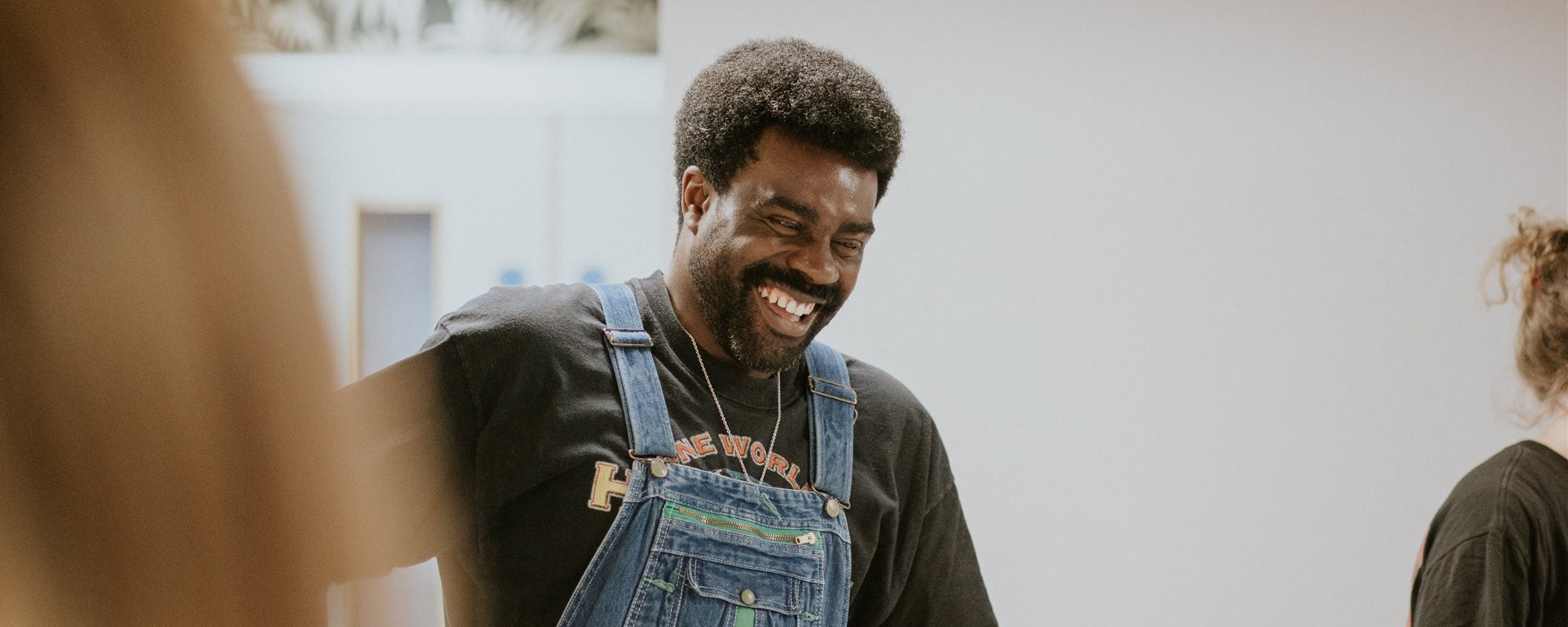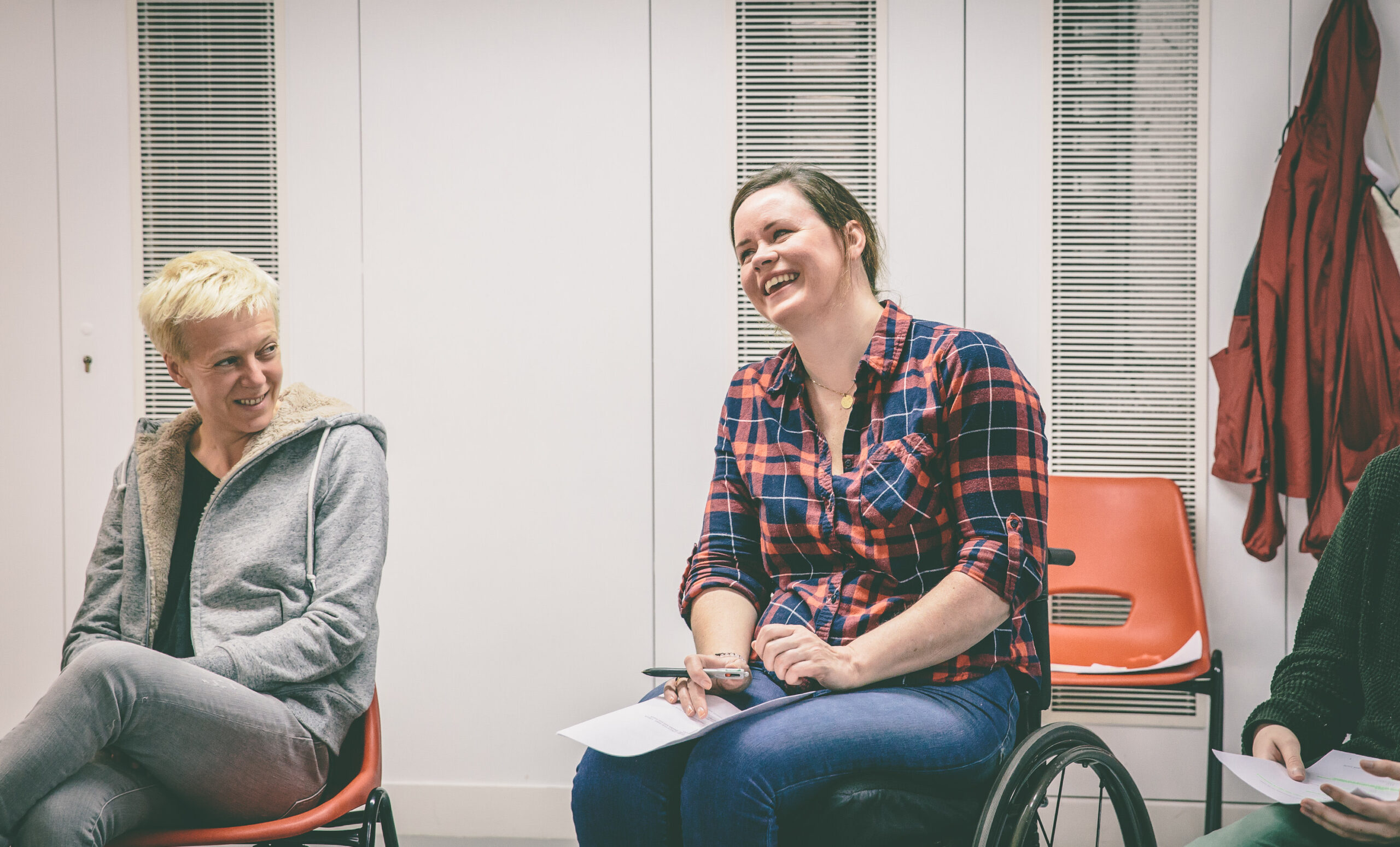Tips for reigniting and maintaining joy in your acting career, no matter what stage you’re at
The journey of most performers stems from a love of the arts and the spellbinding joy that performing brings. The art world provides a space for connection, growth and inspiration – an outlet that provides so much joy, clarity and wellbeing to daily life. But the demands in this industry are extreme and can become overpowering.
To help avoid burnout and a slump in motivation or personal drive, it’s essential to manage mental health and actively reconnect to the joy and positivity that performing provides.
Bringing joy to your performing work
Working in performing arts isn’t for the faint of heart. It requires immense commitment, intense physical and mental demands, and extreme resilience. This kind of dedication is only sustainable if it stems from a place of positivity.
Understandably, we sometimes need a little help to keep the joy alive, so here are four ways to reignite the joy that got you started in this career:
1. Make use of daily positive affirmations
Use affirmations in your professional life to positively reinforce your commitment and progress. These short messages of support, encouragement or inspiration to yourself should focus on things that are important to you. For example: self-confidence, resilience and achieving your goals or personal growth.
Try writing down your own affirmation daily, or invest in a book of joyous affirmations, affirmation cards, or download an affirmations app like ‘ThinkUp’ or ‘Smiling Mind.’ These are great ways of acknowledging the incredible work that you’re doing.
Easy ways of integrating affirmations into your life include:
- Reading or writing an affirmation first thing in the morning and before you go to sleep.
- Sticking an affirmation on your mirror to read when you brush your teeth.
- Putting an affirmation into your (or your child’s) lunchbox for an extra dose of inspiration.
For parents or guardians of young performers, creating a pack of affirmation cards with your child for them to draw from daily is another great way to implement this practice.
2. Remove the pressure
This is a big one. Finding ways to remove pressure and self-judgement helps to reconnect to the core of performing arts. There are many ways to do this, including:
- Improvise. Doing your own improv for fun is a great way to express yourself through your creative medium.
- Play. Workshop ideas on your own or with friends with the simple goal of having fun. Creating without restrictions, judgement or fear is an excellent way to feed the creative soul.
- Learn. Take a class just for the fun of it. No expectations, no pressure, no judgement. Do a class that you love with a teacher you love, and take a friend.
For parents or guardians of young performers, organise a group of your child’s friends to try these suggestions together. Changing up your child’s environment is another good way to disconnect from pressure and reconnect with the positive elements of performance. Go to a park – or a new space away from the studio or class environment.
3. Stay inspired
There are so many resources to fuel creative inspiration. Learn from your role models and mentors in the industry, listen to podcasts, go to workshops and masterclasses, watch shows, read books, and watch interviews with creatives you admire. Keep learning and challenging yourself – and remember why you love your work.
Here is a list of books for young actors to read to help inspire them.
4. Connect with others in the industry
Connect with industry friends, teachers, mentors, and professionals. Being actively involved in your community builds support, belonging, understanding and provides inspiration. Keep growing your community and support system, and make meaningful connections by supporting other performers’ productions, attending or organising fun activities with industry friends outside of the performing environment, going to industry events to meet new people, attending workshops, and learning from professionals.
If you’re on tour, here are eight tips for bonding with your castmates.
How to spark joy in our daily lives
Our mental health affects every aspect of our lives. It influences the way we interact with the world, our perceptions, our physical wellbeing – and it has a direct effect on our performance abilities.
As a performer or the parent of a young performer, regularly checking in with your own (or your child’s) mental health can do wonders for your overall wellbeing, standard of living, career progress and performance capabilities.
There are many ways to manage mental health, but sparking joy is an effective and simple practice that you can start implementing today. Here are six tips for sparking joy in your daily life:
1. Connect with people
Take time to connect with people who uplift and restore you, like family and friends. As human beings, we thrive off connection. Connect in whatever way works for you – whether you schedule a call, go for a walk, take a class, or go for dinner.
For parents or guardians of young performers, this is something that you can cultivate by spending quality time with your child, encouraging family time, and organising playdates with friends who bring positivity into your child’s life.
2. Spend time in nature
There are so many studies that show the positive impact that being in nature has on mental and physical wellbeing. Go for a walk, take a book to the park, try grounding (an activity involving physical contact with the earth to ground and reconnect you, such as taking a walk in the park barefoot or lying down in the grass), swim outdoors, breathe in some fresh air, or go to the park to take in the beautiful views.
For parents or guardians of young performers, this could mean taking a picnic to the park, encouraging outdoor play with your child, or planting some herbs together to grow on your window sill. Shape positive association with nature in your child’s life.
3. Practice self-care
Gifting yourself with space and time to do the things that make you happy helps with stress and mental health management. It also gives you the opportunity to honour yourself and your incredible worth.
If you’re unsure how to practise self-care, take a look at Spotlight’s tips for practical self-care.
Some young performers may need extra help in this area. I would suggest setting up a station or activity that your child loves, and encouraging them to complete it. Support them in prioritising time for themselves.
4. Spend time with animals
What could be more wholesome and rejuvenating than spending time with animals? It does wonders for stress management and emotional regulation, too.
For parents or guardians of young performers, if you don’t have a pet, take your child to visit friends or family who do (with the added bonus of connecting with special people). Take them to the park to see the natural wildlife, volunteer at an animal rescue centre, or take a trip to a sanctuary.
5. Cook
Get your hands dirty and go back to the basics in the kitchen. Cooking and nourishing yourself with healthy, nutritious food is a fun, delicious way to build healthy habits. You can do it with a friend or family member, too – what a win! This is a perfect bonding and self-empowerment activity to do together with your child, too.
6. Start a new hobby
Take up a fun, relaxing hobby that makes you excited and is entirely different from your professional work. This is a great way for performers of all ages to keep the brain learning and stimulated.
Finding simple moments of joy can make a huge difference to our mental state, life quality and performance abilities. Give these techniques a try, and go out and spread that joy.
Take a look at our website for more articles and advice on wellbeing and mental health.
 Ariella Barnett is an exercise scientist, sports physiologist and performing artist. Combining her experience as a professional performing artist with her expertise as an exercise scientist, Ariella guides industry professionals to reach new heights. Specialising in working with performing artists, Ariella optimises overall performance, manages well-being, embraces individuality and prevents injury to ultimately build long, sustainable, successful careers.
Ariella Barnett is an exercise scientist, sports physiologist and performing artist. Combining her experience as a professional performing artist with her expertise as an exercise scientist, Ariella guides industry professionals to reach new heights. Specialising in working with performing artists, Ariella optimises overall performance, manages well-being, embraces individuality and prevents injury to ultimately build long, sustainable, successful careers.
Headshot credit: Justin Munitz / Headshots Cape Town
Image credit: PeopleImages / iStock












